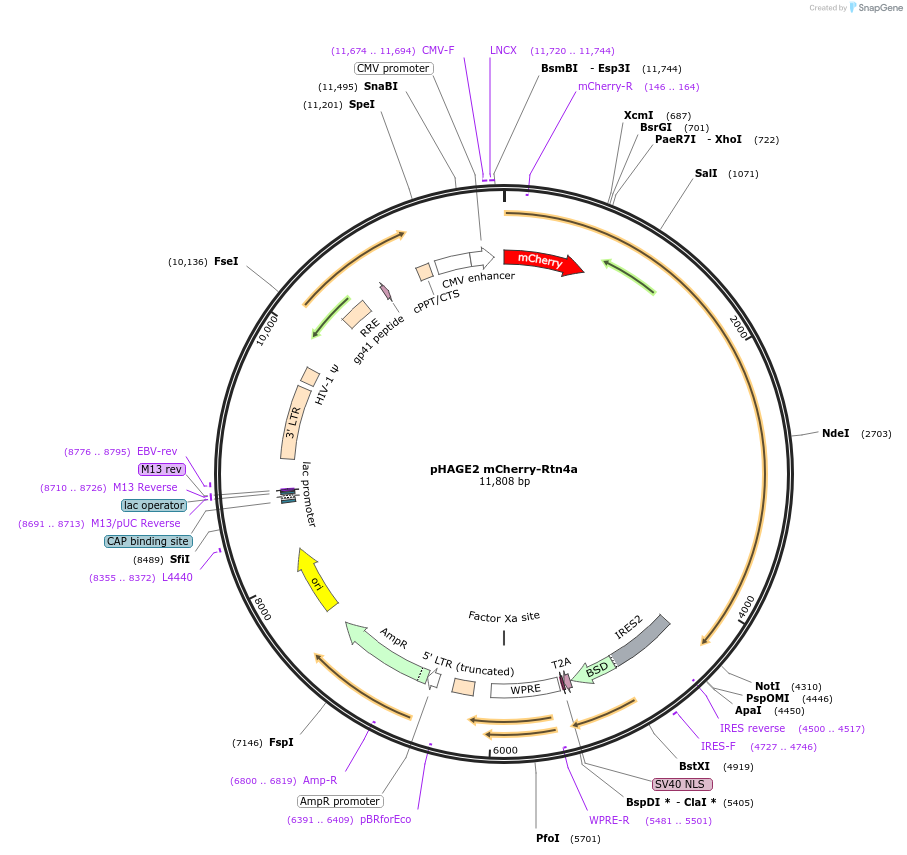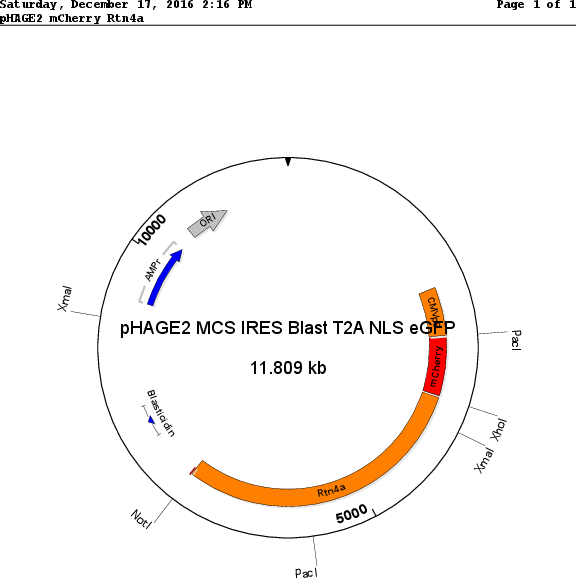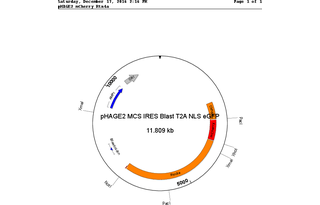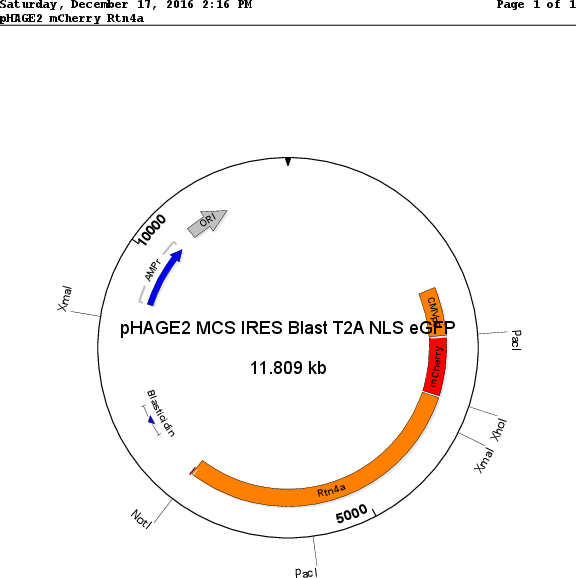-
PurposeLentivirus to stably express fluorescent human protein in mammalian cells
-
Depositing Lab
-
Sequence Information
Ordering
| Item | Catalog # | Description | Quantity | Price (USD) | |
|---|---|---|---|---|---|
| Plasmid | 86683 | Standard format: Plasmid sent in bacteria as agar stab | 1 | $85 | |
Backbone
-
Vector backbonepHAGE2 mCherry N-terminal
- Backbone size w/o insert (bp) 8200
- Total vector size (bp) 11809
-
Vector typeMammalian Expression, Lentiviral
-
Selectable markersBlasticidin
Growth in Bacteria
-
Bacterial Resistance(s)Ampicillin, 100 μg/mL
-
Growth Temperature37°C
-
Growth Strain(s)NEB Stable
-
Copy numberHigh Copy
Gene/Insert
-
Gene/Insert nameRtn4a
-
SpeciesH. sapiens (human)
-
Insert Size (bp)3576
-
Entrez GeneRTN4 (a.k.a. ASY, NI220/250, NOGO, NSP, NSP-CL, Nbla00271, Nbla10545, RTN-X, RTN4-A, RTN4-B1, RTN4-B2, RTN4-C)
- Promoter CMV
-
Tag
/ Fusion Protein
- mCherry (N terminal on backbone)
Cloning Information
- Cloning method Restriction Enzyme
- 5′ cloning site XhoI (not destroyed)
- 3′ cloning site NotI (not destroyed)
- 5′ sequencing primer GGTCTATATAAGCAGAGCTCG
- 3′ sequencing primer CATATAGACAAACGCACACC (Common Sequencing Primers)
Resource Information
-
A portion of this plasmid was derived from a plasmid made byYoko Shibata
-
Article Citing this Plasmid
Terms and Licenses
-
Academic/Nonprofit Terms
-
Industry Terms
- Not Available to Industry
Trademarks:
- Zeocin® is an InvivoGen trademark.
Depositor Comments
Addgene NGS results found P122Q and P145T within the Rtn4a translation compared to NP_065393.1.
These plasmids were created by your colleagues. Please acknowledge the Principal Investigator, cite the article in which the plasmids were described, and include Addgene in the Materials and Methods of your future publications.
-
For your Materials & Methods section:
pHAGE2 mCherry-Rtn4a was a gift from Tom Rapoport (Addgene plasmid # 86683 ; http://n2t.net/addgene:86683 ; RRID:Addgene_86683) -
For your References section:
Cooperation of the ER-shaping proteins atlastin, lunapark, and reticulons to generate a tubular membrane network. Wang S, Tukachinsky H, Romano FB, Rapoport TA. Elife. 2016 Sep 13;5. pii: e18605. doi: 10.7554/eLife.18605. 10.7554/eLife.18605 PubMed 27619977





